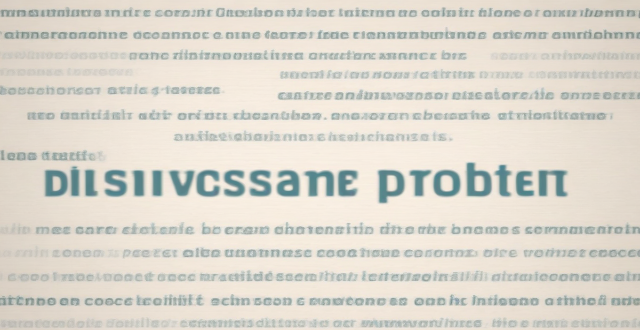This text discusses probate, the legal process of transferring a deceased person's assets to their heirs or beneficiaries. It explains why many choose to avoid probate, which can be time-consuming and costly, and outlines various methods for doing so, such as creating a revocable living trust, joint tenancy with right of survivorship, pay-on-death accounts, transfer-on-death designations, gifting assets during one's lifetime, designating beneficiaries on retirement accounts and life insurance policies, using a will with a probate avoidance clause, and considering state-specific strategies. The text emphasizes the importance of careful planning and consulting professionals to ensure assets are distributed according to one's wishes without court interference.

What is Probate?
Probate is the legal process that occurs after a person dies, during which their assets and property are transferred to their heirs or beneficiaries. This process is typically overseen by a court and involves identifying and valuing the deceased person's assets, paying off any debts or taxes owed by the deceased, and distributing the remaining assets to the rightful heirs.
Why Avoid Probate?
While probate is a necessary process for transferring assets after death, it can also be time-consuming, costly, and public. Many people choose to avoid probate to save money on legal fees, maintain privacy, and ensure that their assets are distributed according to their wishes without interference from the court.
How to Avoid Probate
There are several ways to avoid probate, including:
1. Create a Revocable Living Trust
- A living trust allows you to transfer your assets into a trust during your lifetime, which then passes to your beneficiaries upon your death without going through probate.
- This option provides flexibility and control over your assets while maintaining privacy and avoiding court involvement.
2. Joint Tenancy with Right of Survivorship
- Owning property jointly with another person means that when one owner dies, the surviving owner automatically becomes the sole owner of the property, bypassing probate.
- This method is simple but may not be suitable for all situations, especially if there are multiple heirs involved.
3. Pay-on-Death (POD) Accounts
- Setting up bank accounts or brokerage accounts as POD allows the funds in those accounts to be transferred directly to a designated beneficiary upon your death without going through probate.
- This is an easy way to handle financial accounts but does not cover other types of assets.
4. Transfer-on-Death (TOD) Designations
- Similar to POD accounts, TOD designations can be used for vehicles and other types of assets, allowing them to pass directly to a beneficiary without probate.
- This method requires careful consideration of state laws and may not apply to all assets.
5. Gifting Assets During Your Lifetime
- Gifting assets to family members or loved ones before your death can reduce the value of your estate and potentially eliminate the need for probate for those specific assets.
- Be mindful of gift tax laws and potential impacts on Medicaid eligibility when considering this option.
6. Designate Beneficiaries on Retirement Accounts and Life Insurance Policies
- Most retirement accounts and life insurance policies allow you to name a beneficiary who will receive the proceeds directly upon your death, bypassing probate.
- Review these designations regularly to ensure they reflect your current wishes.
7. Use a Will with a Probate Avoidance Clause
- While a will itself does not avoid probate, including provisions such as pour-over wills that work in conjunction with a living trust can help minimize the probate process for any assets not included in the trust.
- This method requires careful planning and coordination between your will and trust documents.
8. Consider State-Specific Probate Avoidance Strategies
- Some states offer unique options for avoiding probate, such as affidavits of heirship or transfer-on-death deeds for real property.
- Researching and understanding the laws of your state can reveal additional strategies tailored to your situation.
Conclusion
Avoiding probate requires careful planning and often involves consulting with legal and financial professionals. By employing one or more of the strategies outlined above, you can potentially save time, money, and maintain privacy regarding your asset distribution after your death. It's essential to consider your individual circumstances and goals when choosing the best methods to avoid probate.